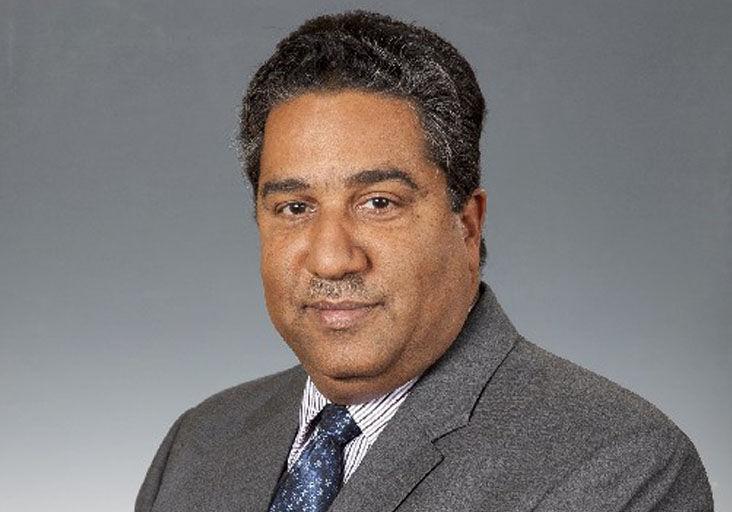(Trinidad Express) The Member of Parliament (MP) who secures 21 signatures can be appointed the next Prime Minister of Trinidad and Tobago.
The Express spoke to Prof Hamid Ghany yesterday by phone, who explained the constitutional jargon as it relates to what happens when Prime Minister Dr Keith Rowley demits office.
On January 3, the Prime Minister stated that he would not return to electoral politics and said, “Before the end of the legal limits of this term, I will resign this office and go off to my family.”
Ghany, Professor of Constitutional Affairs and Parliamentary Studies at The University of the West Indies (The UWI), stated that one of the conditions for becoming Prime Minister is that:
a. you are the leader of the party with a majority and are willing to serve, or
b. you are an MP who commands the support of a majority of MPs and are willing to serve.
He explained that the Prime Minister’s indication that he is no longer willing to serve opens the door for the President to make an appointment.
Ghany stated that a new Prime Minister would have to be appointed based on Section 76(1)(b) of the Constitution, which specifies that the individual must command the support of a majority of MPs and be willing to serve as Prime Minister. However, he added that the appointment is made at the President’s discretion, in accordance with Section 80(3) of the Constitution.
“The President will exercise a discretionary power to choose a Prime Minister, and she will determine who she thinks can command the support of a majority,” he said.
When asked if Opposition MPs could influence the process, Ghany noted that any MP could obtain 21 signatures, meaning support from the Opposition bench could also be sought. He pointed out that the death of D’Abadie/O’Meara MP Lisa Morris-Julian has altered the parliamentary numbers, reducing the House to 40 MPs, instead of 41.
At present, the PNM has 21 MPs (previously 22), and the UNC has 19.
“So, it is a very interesting constitutional situation. To be safe, 21 would be the magic number. For argument’s sake, you might reach 20, but ultimately, 21 is necessary to be absolutely certain,” he said.
Ghany pointed out that a similar situation occurred in 2001, when three UNC MPs withdrew their support from then-prime minister Basdeo Panday and instead supported Patrick Manning.
This forced Panday to dissolve Parliament and call a general election.
“We have seen this before. It didn’t proceed because the Prime Minister dissolved Parliament. We don’t know what will happen here if there is resistance to the idea of who will succeed. It is a very delicate political situation, but Dr Rowley has opened the door to new arrangements,” he said.
Role of the
President
Ghany also highlighted the pivotal role of President Christine Kangaloo in this process.
“The President will have to make the appointment if there is a vacancy. What happens afterwards, in terms of what is presented to the President to form her opinion, is another matter,” he said.
He recalled that in the 2001 general election, there was an 18-18 tie between the UNC (led by Panday) and the PNM (led by Manning). At that time, President Arthur NR Robinson appointed Manning as Prime Minister, believing he could command a majority.
Ghany also pointed out that Rowley, by retaining political leadership of the PNM, still wields power and can take disciplinary action against MPs.
According to Section 49(2)(e) and Section 49A of the Constitution, the leader of the party in the House can inform the Speaker if an MP has resigned or been expelled, enabling the Speaker to declare the seat vacant. However, Ghany noted that no by-election can be held in an election year.
By remaining political leader, Rowley retains significant influence in Parliament. Additionally, as head of the PNM’s screening committee, Rowley holds power in candidate selection.
“It’s an intriguing constitutional and political arrangement. As Prime Minister, he is signalling his unwillingness to serve, allowing the mantle of Prime Minister to pass to someone else. However, by staying as political leader, the PNM will have a leader who is not Prime Minister, which is a very unique situation,” said Ghany.
He speculated that these unfolding events were planned well in advance.
In November 2024, the PNM postponed its internal elections and special convention. The election for political leader is scheduled for 2026. However, Rowley has indicated he will not hold on until then.
Ghany said Rowley has chosen two distinct paths: resigning as Prime Minister to allow Parliament to appoint a successor, while retaining political leadership of the party for now.
“With the Government, you can change the Prime Minister without changing the party leader. That is the approach he is taking,” he said.
He reiterated that a Prime Ministerial candidate requires 21 supporting signatures.
“If, however, no one can secure 21 MPs, it changes the political equation entirely,” he said.









